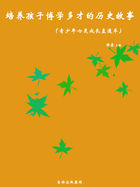My Friend,--Come and see me; I am in despair. Antoine sent you away when your arrival would have put an end to one of the most horrible nightmares of my life and delivered me from a man I hate, and whom I trust never to see again. I love you only in this world, and I can never again love any one but you, though I have the misfortune not to please you as I fain would--She wrote four pages which, beginning thus, ended in an exaltation too poetic for typography, in which she compromised herself so completely that the letter closed with these words: "Am I sufficiently at your mercy? Ah! nothing will cost me anything if it only proves to you how much you are loved." And she signed the letter, a thing she had never done for Conti or Calyste.
The next day, at the hour when La Palferine called, Beatrix was in her bath, and Antoine begged him to wait. He, in his turn, saw Calyste sent away; for du Guenic, hungry for love, came early. La Palferine was standing at the window, watching his rival's departure, when Beatrix entered the salon.
"Ah! Charles," she cried, expecting what had happened, "you have ruined me!""I know it, madame," replied La Palferine, tranquilly. "You have sworn to love me alone; you have offered to give me a letter in which you will write your motives for destroying yourself, so that, in case of infidelity, I may poison you without fear of human justice,--as if superior men needed to have recourse to poison for revenge! You have written to me: 'Nothing will cost me anything if it only proves to you how much you are loved.' Well, after that, I find a contradiction between those words and your present remark that I have ruined you. Imust know now if you have had the courage to break with du Guenic.""Ah! you have your revenge upon him in advance," she cried, throwing her arms around his neck. "Henceforth, you and I are forever bound together.""Madame," said the prince of Bohemia, coldly, "if you wish me for your friend, I consent; but on one condition only.""Condition!" she exclaimed.
"Yes; the following condition. You must be reconciled to Monsieur de Rochefide; you must recover the honor of your position; you must return to your handsome house in the due d'Anjou and be once more one of the queens of Paris. You can do this by making Rochefide play a part in politics, and putting into your own conduct the persistency which Madame d'Espard has displayed. That is the situation necessary for the woman to whom I do the honor to give myself.""But you forget that Monsieur de Rochefide's consent is necessary.""Oh, my dear child," said La Palferine, "we have arranged all that; Ihave given my word of honor as a gentleman that you are worth all the Schontzes of the quartier Saint-Georges, and you must fulfil my pledge."For the next week Calyste went every day to Madame de Rochefide's door, only to be refused by Antoine, who said with a studied face, "Madame is ill."From there Calyste hurried to La Palferine's lodging, where the valet answered, "Monsieur le comte is away, hunting." Each time this happened the Breton baron left a letter for La Palferine.
On the ninth day Calyste received a line from La Palferine, making an appointment to receive him. He hurried to his lodgings and found the count, but in company with Maxime de Trailles, to whom the young /roue/ no doubt wished to give proof of his /savoir-faire/ by making him a witness of this scene.















